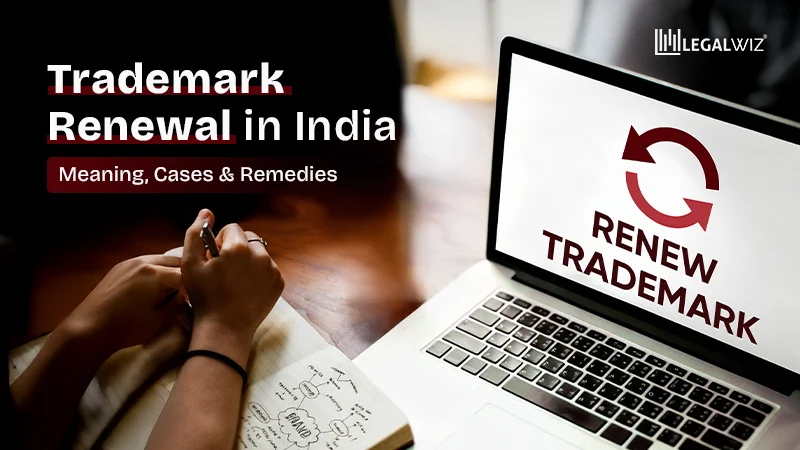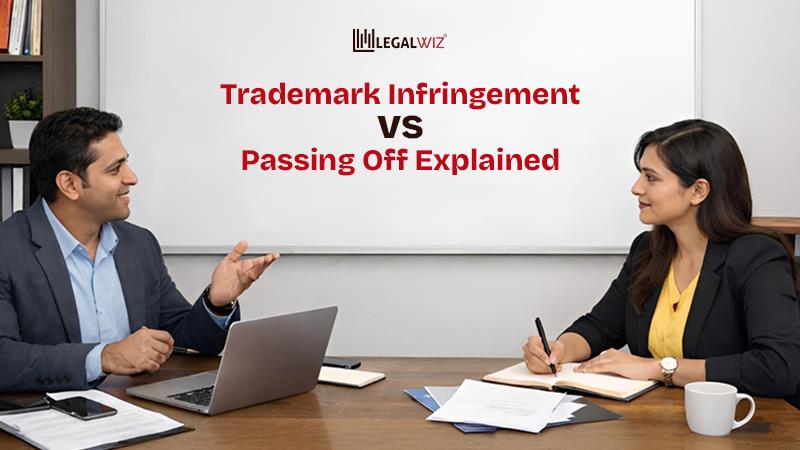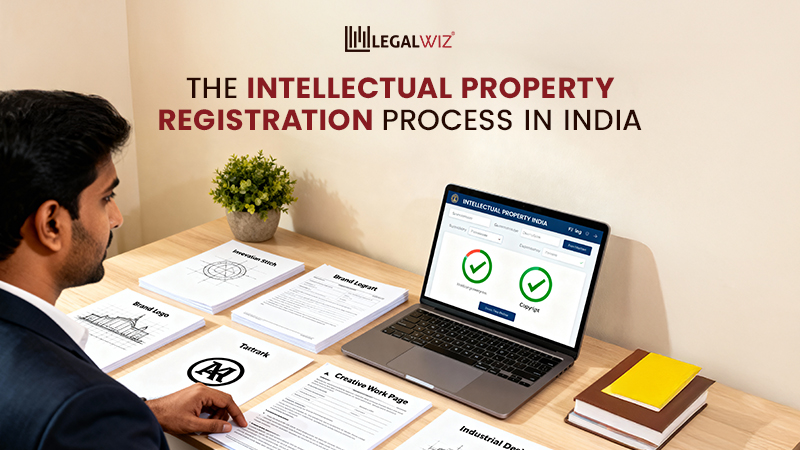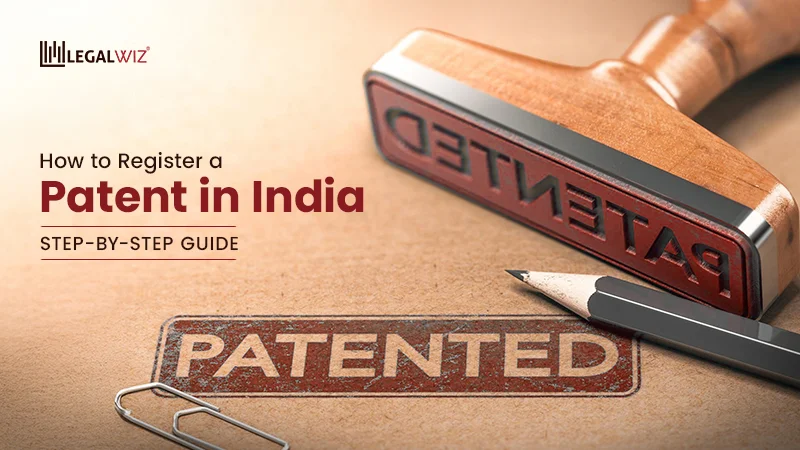Trademark Renewal in India: Process, Fees & Period
Trademarking your product is the same as owning your passport; after a certain period, you need to renew it. And if you fail to do so, it will result in you losing that ownership over something that is yours.
If you are also one of those brands that think registering a trademarkis the finish line. You are wrong; it is not. Your TM runs out after a fixed period, so having a trademark renewal is essential. Renewing keeps your reputation intact and keeps copycats from slipping in and taking what you built.
That’s why we are here; we have made sure to cover all the nooks you need to know for the trademark renewal. It includes what it means, a step-by-step renewal guide, the fees involved, how long protection lasts, and a few practical tips to avoid last-minute messes. By the end, you will know exactly how to keep your trademark safe, active, and doing its job for your brand.
1. What is a Trademark Renewal?
Trademark renewal is the official way to keep your trademark valid. In India, a trademark that has been registered is good for ten years. Renewal just starts the clock over for another ten years, keeping your rights alive and your brand safe from the law.
Before we dive deeper into the whole process of trademark renewal, let’s explore the different types of trademarks out there. Think of it as knowing the characters before the plot thickens; each type has its own role in protecting your brand’s identity.
2. Understanding Trademark Validity & Renewal Period
Think of a trademark like a decade-old diary; it starts fresh the day you register it, but won’t magically stay relevant forever.
| Aspect | Details | Key Information |
| Initial Registration Validity | 10 years from the date of filing | Your trademark is legally protected for a decade, giving you exclusive rights to use and enforce it. |
| Renewal Period | Every 10 years | Renewal extends the protection for another 10 years each time, ensuring continuous legal rights over your brand. |
| Grace Period | Short period allowed for late renewal | India allows a limited grace period after expiry to renew the trademark, preventing immediate loss of rights, though additional fees may apply. |
| Consequences of Not Renewing | Risk of cancellation | Failure to renew can lead to cancellation of the trademark, leaving your brand unprotected and vulnerable to infringement. |
To know further about the renewal validity and other essential details connected to it, read our blog on: How long is your Trademark Valid?
3. Who Can Apply for Trademark Renewal?
Renewing a trademark isn’t like picking up a library book—you can’t just send your cousin or your office intern. Only the rightful owner gets the golden ticket to keep the trademark alive.
- Registered Owner: This is the person or company whose name shines on the trademark certificate. They’re the ones with the legal power to hit that renew button and keep the brand protected.
- Joint Owners: Got more than one name on the certificate? Then renewal turns into a team sport. Everyone has to agree before moving forward. A solo attempt might lead to legal headaches that no one signed up for.
4. Step-by-Step Trademark Renewal Process in India
Renewing a trademark isn’t rocket science, but missing a step can put your brand in trouble. Here’s how you do it:
Step 1: Check the Renewal Date
Go to the IP India portal and check when your trademark needs renewal. Missing it is like missing your flight—costly and stressful.

Step 2: Get Form TM-R Ready and Send It In
Use Form TM-R to renew, either online or in person. Be careful filling it; mistakes can slow things down.

Step 3: Pay the Fees
It’s time to pay. The fee depends on whether you’re a person, startup, or a business. Paying on time helps your application go smoothly.
Step 4: The Official Check
Trademark Office will look at your application to make sure it is correct. Any missing info will be pointed out.
Step 5: Get Your New Certificate
After approval, you’ll get a new certificate. This extends your protection for another 10 years.
Step 6: Keep Monitoring and Updating
Renewal doesn’t mean you’re done. Keep records updated and watch for violations. Brand protection is ongoing work.
5. Trademark Renewal Fees in India
There are different fees for renewing a trademark in India, depending on who is applying and when:
- Fees for renewing with the government: Fees are different for people, startups, and businesses. You have to pay this in order for the renewal to go through.
- Fees for Professionals/Agents: If you hire a trademark attorney or agent to handle the process, you will have to pay them extra.
- Penalty Fees for Late Renewal: If you miss the renewal deadline, you may have to pay extra fees during the grace period.
Quick Reference: Trademark Renewal Fees
| Applicant Type | Standard Renewal Fee (per class) | Late Renewal Fee (if applicable) |
| Individual/Startup | ₹9,000 | ₹1,000 additional |
| Company/Others | ₹15,000 | ₹1,000 additional |
Note: Fees are subject to updates by the Indian Trademark Office. Always check the official IP India portal before submitting your application.
6. Common Mistakes & How to Avoid Them During Trademark Renewal
Even seasoned business owners can trip up on trademark renewal. Here are the usual pitfalls and how to dodge them:
| Common Mistake | How to Avoid It | Key Tip |
| Missing the Renewal Deadline | Set reminders well in advance and track the renewal date carefully | Treat it as a “do not forget” date for your brand |
| Using Outdated Forms or Incorrect Details | Always use the latest TM-R form and double-check all information before submission | Errors can delay or invalidate your renewal |
| Ignoring Official Notices | Read and act on all communications from the Trademark Office promptly | Missing notices can cause missed deadlines or complications |
| Failing to Update Ownership or Contact Information | Update records immediately when there are changes in ownership, addresses, or company details | Ensures renewal notices reach the correct person and legal rights remain protected |
7. Legal & Practical Implications of Non-Renewal
Missing a trademark renewal isn’t just a paperwork slip; it’s an invitation for trouble:
- Easy to Cancel: Once the renewal window closes, your trademark vanishes from the official register. Bye-bye, protection.
- Copycats on the Prowl: Competitors or opportunists can swoop in and register marks that mimic yours, chipping away at your uniqueness.
- Brand Reputation at Risk: Without legal backing, defending your brand becomes a headache. Confused customers, shaken trust, and a dented brand image can linger long after.
Renewal isn’t just a formality; it’s your brand’s armor in the market.
And even after the renewal, someone tries to be smart and dilute people with similarities to your brand for their own. Fret not, if you have a trademark, you will have legal protection. Read a similar case and understand why renewal is essential: Trademark- Starbucks vs. Sardarbuksh
8. Tips for Smooth Trademark Renewal
Staying ahead of deadlines makes trademark renewal far less stressful. Here are some simple practices that go a long way:
| Practice | Why It Helps |
| Set Calendar Reminders | Mark renewal dates months early so you’re not pulling an all-nighter at the last minute |
| Keep Copies Handy | Digital + physical certificates = quick access and fewer “where did I put that?” moments |
| Go Online | Filing through portals is faster, trackable, and keeps the paperwork pile from taking over your desk |
| Bring in a Pro | IP consultants act like brand bodyguards—great for tricky cases or multiple trademarks |
These small steps help you keep your trademark secure without unnecessary drama.
Conclusion: Keep Your Trademark Alive
A trademark isn’t just a fancy stamp on your brand—it’s more like a shield that keeps away the copycats while keeping your customers’ trust intact. But shields need upkeep too. Skip the process for renewal of your trademark, and suddenly you’re dealing with cancellations, legal hiccups, or worse, a rival trying to strut around in your brand’s shoes.
The smarter play? Stay ahead of it. Set reminders on your phone, keep your trademark records neat, or call in professionals when things feel too knotty. It’s way cheaper (and calmer) than scrambling later and saying, “Well, that escalated quickly.”
And if chasing deadlines and filling forms makes you want to nap, platforms like LegalWiz.in can do the heavy lifting. They’ll handle the paperwork, keep the process smooth, and make sure your trademark stays very much alive—standing guard for your brand year after year.
Frequently Asked Questions
What is the duration for trademark renewal in India?
Revamping a trademark typically necessitates a period of several weeks to months. How busy the Trademark Office is and how organized your documentation is will determine this.
Can a trademark be perpetually renewed?
Yes. Anyone can renew a trademark every ten years or more if they pay the renewal fees and meet the renewal dates.
What are the consequences of missing the deadline for trademark renewal?
Missed the deadline? No problem! You may still apply during the grace period, but be prepared to pay extra fees. However, your trademark may be cancelled, and other individuals may register it once the grace period ends.
Can an Indian citizen renew their policy online?
Undoubtedly, yes. You have the option to submit Form TM-R and make the payment through the IP India portal. Renewal is now more convenient and quick.
Is it necessary for each joint owner to submit their renewal application separately?
No. All co-owners must agree to the renewal application before it can be filed for trademarks that are owned by more than one person.

Sapna Mane
Sapna Mane is a skilled content writer at LegalWiz.in with years of cross-industry experience and a flair for turning legal, tax, and compliance chaos into clear, scroll-stopping content. She makes sense of India’s ever-changing rules—so you don’t have to Google everything twice.







